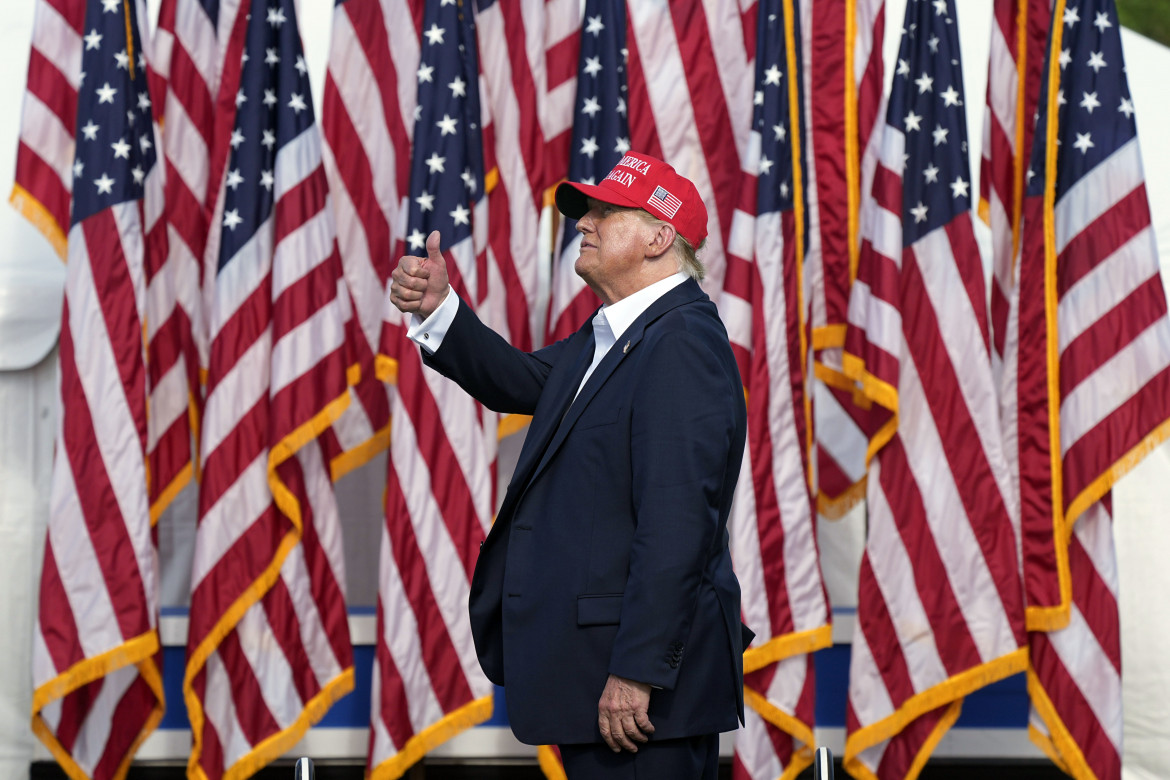Analysis
It’s official: There’s no limit to the president’s power
The Supreme Court’s decision sets the stage for the man who has publicly declared his intention to be a “dictator … on Day One” of his presidency to be the first to take full advantage of it.

With the ruling establishing substantial immunity for the president, the U.S. Supreme Court has put a heavy thumb on the scales of the upcoming elections and the country's future. The reactionary majority, including three justices appointed by Donald Trump himself, overturned an earlier federal court decision and ruled that Trump himself cannot be tried for any “official” acts undertaken while in office. The case stems from the trial for Trump’s attempt to subvert the results of the 2020 election.
A federal court in Washington had upheld the legitimacy of the charges filed by special prosecutor Jack Smith, alleging that after losing the election, Trump promoted a campaign of disinformation about alleged fraud and tried to invalidate the results by any and every means, including a last-ditch attempt to block its certification by Congress by inciting a mob of supporters to storm the Capitol.
Instead, the Supreme Court’s reversal upheld Trump's appeal, which claimed no less than the “total immunity” of a sitting president, whose decisions should not be affected by the risk of lawsuits. More precisely, the Court created a distinction for presidents between “official” and “unofficial” acts, criminal prosecution being allowed only for the latter. The decision ordered the trial judge to make a detailed distinction between the two categories, a difficult and subjective task, which will presumably be subjected to endless appeals. First and foremost, this decision achieves the goal of delaying the proceedings to the point that it will be impossible to reach trial before the November elections.
However, this delaying tactic, tailor-made for the Trump campaign, actually sets a precedent that creates an enormous constitutional loophole and enshrines the momentous institutional distortion brought about by the Trumpist era. The ruling was signed by justices including Clarence Thomas, whose spouse, Ginni Thomas, actively supported the January 2021 insurrection, and Samuel Alito, who flew the flags of the election subversion movement in front of his home at the time. And this decision creates, for the first time in U.S. history, an imperial presidency whose only limits will be set by the ethical restraint and moral scruples of the incumbent president.
At the same time, the decision sets the stage for the man who has publicly declared his intention to be a “dictator … on Day One” of his presidency to be the first to take full advantage of it. The first act of a re-elected Trump would certainly be to order the Justice Department to cease all proceedings against him and, in essence, pardon himself. It would only be the first act of a presidency covered by immunity and impervious to any higher authority, fundamentally distorting the arrangement of powers outlined in the Constitution and putting the Supreme Court back at the center of the political shift taking place.
The conservative takeover of the highest court was accomplished by the GOP Senators' boycott of a nomination that Obama put forward to replace the Reagan-nominated Antonin Scalia in 2016. Later on, Trump was able to select as many as three nominees from the list compiled by the Federalist Society, an organization that functions as a kind of “Opus Dei” of the judiciary, drawing up a list of candidates with proven conservative credentials. The six justices who make up the Court's current reactionary supermajority all belong to that group. All are Catholic fundamentalists and aligned with Trump.
Monday’s ruling, which weighs heavily on the voters' decision, effectively eliminating the possibility that the trial against Trump could come to a conclusion before the presidential election, removes any remaining doubt about the subversive role of this court, whose work this year has offered explicit support to the agenda of a radicalized GOP. Only last week, another ruling effectively removed the regulatory power of federal agencies charged with regulating every administrative area, from finance to health, climate and environmental protections. Final authority over all of these has been taken back by the legal realm, where private and industrial interests will be able to counter – and cripple – government regulations in the courts. An enormous “devolution” to capital and the de jure implementation of that “deconstruction of the administrative state” included in the radical Republican program called Project 2025.
Taken together, the rulings give the measure of the Court's ideological drift. Notably, Monday’s ruling was published on the 50th anniversary of the 1974 decision by which the same Court ordered Richard Nixon to turn over the secret recordings made in the Oval Office to the Watergate Inquiry Commission. That act, which would lead to the president's resignation, remains celebrated to this day as a high watermark for democracy against abuses of power. Now, the Court has endorsed such abuse and made it inevitable in the future.
Now under the control of a politically extremist sect, the third branch of government, composed of unelected judges, appointed for life and with no self-disciplinary rules (as evidenced by the recent scandals that have come to light), has as of Monday given itself a primary role in the potential conversion of the United States into a post-democratic regime – and in the deconstruction of a democracy that as of now is a shadow of its former self.
Originally published at https://ilmanifesto.it/corte-suprema-usa-non-ce-limite-al-potere-della-presidenza on 2024-07-02
